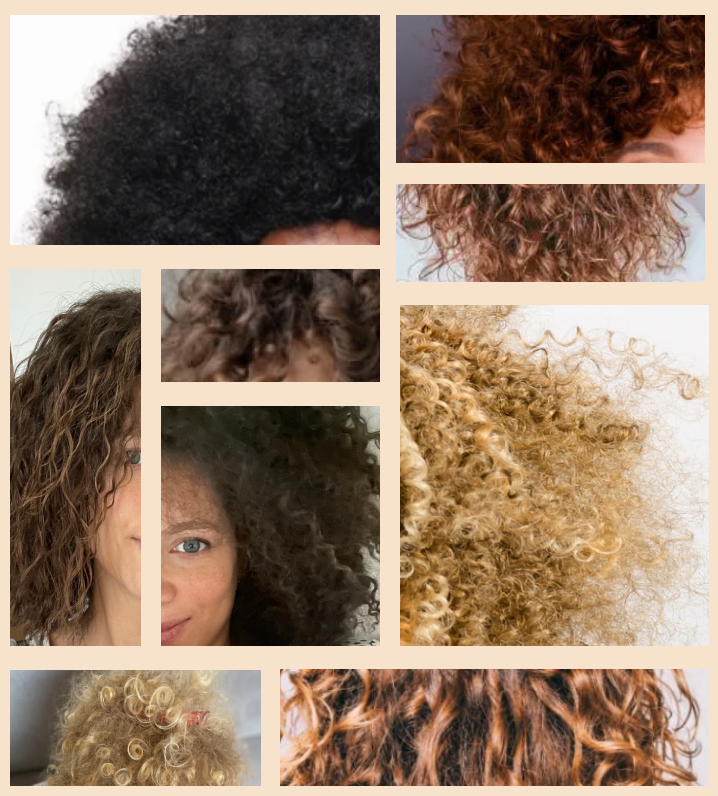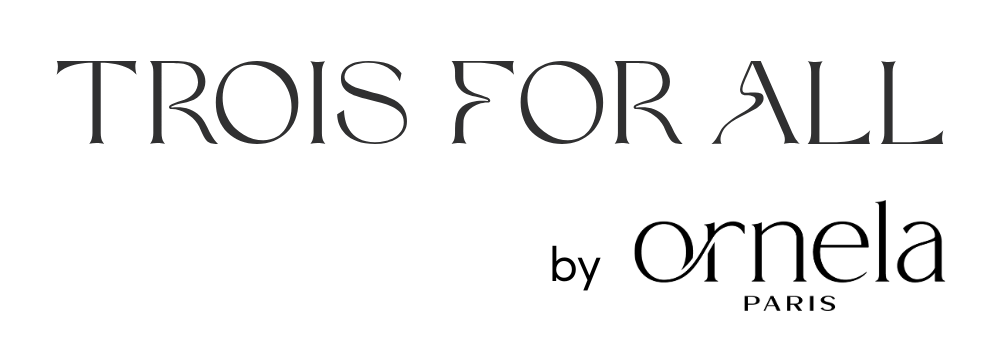
Porosity, density, thickness, type of curls: How to find your way?
Porosity, density, thickness, type of curls: How to find your way?

Today, there are many blogs, Instagram accounts, TikToks talking about hair and more particularly curly, frizzy and frizzy hair. Their arrival was beneficial in highlighting the beauty of our hair and democratized the use of suitable natural care.
I personally follow dozens of them and never tire of always discovering new products, new cuts, new styling techniques, in short, seeing the endless versatility of textured hair. On the other hand, it gives us access to a quantity of information that can quickly overwhelm us.
“Be careful, if your hair is not very porous, this product is not suitable” - “this one is made for thick hair, this one for dense hair” - “if you have a curl beyond 3c, it it's better to do it like this" - "you need to determine if your hair needs hydration or nutrition" - "water hydrates/does not hydrate" - "it's best to wash your scalp every X days" , etc... On paper, these subjects are fascinating and we are interested in them so as not to make any mistakes in the hair routine.
But ultimately…aren’t we a little lost?
-
The famous ‘glass of water test’ to determine its porosity, carried out several times, rarely gives the same result;
-
Hydration goes hand in hand with nutrition, neither works without the other;
-
The season or a sports session or a bad night or too many products applied, can force you to wash your hair more frequently, so it is not easy to have a predefined 'washing frequency', nor a dedicated day of the week for washday.
-
It is not uncommon to have different types of curls on your head. And we are obviously not going to apply 3 different treatments per section concerned 😉

To have healthy hair, 3 steps are enough: WASH - CARE - STYLE
And at Trois For All, our formulas are suitable for all curls, textures, thicknesses, density: you just need to adapt the use and quantity.

More generally on everyday products, our first advice is to look at the composition. If it is healthy, there is little chance of it “damaging the hair”, and of course, avoid the ingredients which can mislead our first opinion on the product and which are not beneficial in the long term (eg: silicone ).
Once assured of this, simply trust yourself about the feeling you have after applying the product.
Does your hair seem silky? Soft ? Was the application enjoyable? Styling made easy? Does the product have the advertised/expected effect? So bank.
If it doesn't meet your needs at the moment, you will feel it. For example, I was recommended sapote oil in an oil bath:: it is indeed an oil full of benefits but I immediately felt when applying that it was too heavy for the thickness of my hair. It didn't slip and rinsing wasn't pleasant. I just had to cut it with a lighter oil and my hair liked it.
Concerning the hydration/nutrition balance, this is perhaps the most difficult to find. This is evolving quickly, some products do both, they hydrate and nourish at the same time, others are more focused on a specific benefit, it’s all about finding the right balance. Once again, you will feel it. If your hair lacks hydration, it will be rough to the touch, difficult to detangle, if it lacks nutrition, it will be brittle and curls will not form well. Likewise, if they are too porous, they will quickly absorb your treatments and immediately ask for more, etc.
TRUST YOURSELF.
As for the more technical terms used on networks and by enthusiasts, if you want to know more about your hair, do not hesitate to ask professionals or ask us your questions on our Instagram page troisforall .
And remember that our needs are always evolving. The routine that suits you today may not be the same in a few months or years. Our lifestyle changes, our diet changes, our hormones, our level of fatigue, stress, in short... life is made up of elements that influence the health and needs of our hair. It is not easy to theorize it.

Let's simplify our lives and enjoy the products that suit us.


